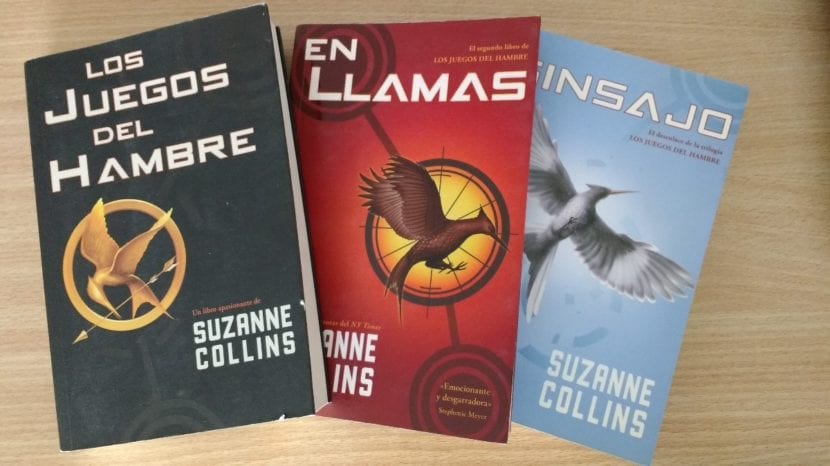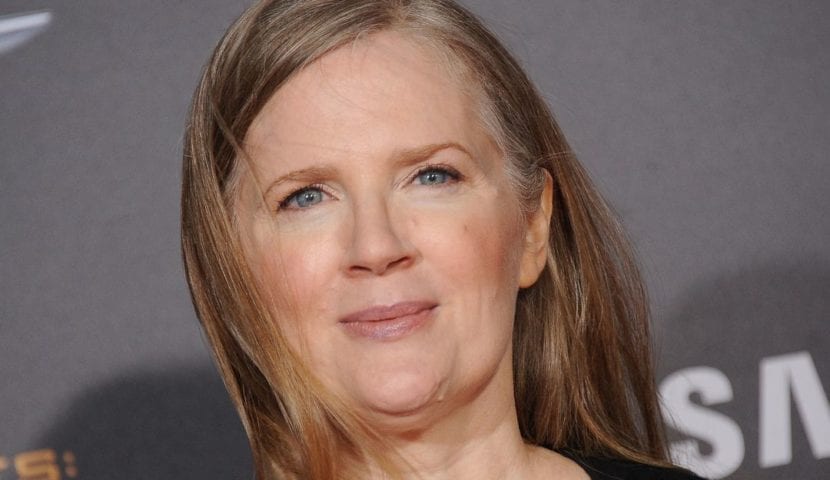
The Hunger Games books.
La successful and acclaimed trilogy of the books of The Hunger Games was written by Suzanne Collins, an American playwright born in Hartford, Connecticut, on August 10, 1962. She is the daughter of Jane and Michael Collins, a military member of the United States Air Force. He began his Drama studies at Indiana University, later he completed his training at New York University.
Before consecrating with The Hunger Games (2008) The Hunger Games: Catching Fire (2009) and The Hunger Games: Mockingjay (2010) one of the best recent literary sagas, Collins also produced children's stories for television shows. since the early 1990s. These include The little bear y Clarisa's Story.
A new millennium for Collins: stories, triumphs and breakups
With the entry of the new millennium Collins wrote Gregor, a children's series that tells a fantastic world full of rodents and talking insects and divided into five deliveries: The Lowlands (2003) The Second Prophecy (2004) The great plague (2005) The Dark Secret (2006) and The Final Prophecy (2007)
Evidently The arrival of The Hunger Games in the cinema marked a turning point in Collins' career. When the trilogy was brought to the big screen by Gary Ross (2012) and Francis Lawrence (2013, 2014 and 2015), the world shook. This was no accident, the saga was starred by a stellar cast led by Oscar winner Jennifer Lawrence.
In 2013 he published A Year In The Jungle, an autobiographical illustrated children's story in which he recounts the experiences of a girl waiting for her father, consigned to the war in Vietnam. Suzanne Collins was married to Charles Pryor for 23 years, from 1992 to 2015. The marriage produced two children.
Inspiration and plot of The Hunger Games
Collins has stated in various interviews that he was inspired by the legend of Spartacus. The author also incorporated elements from Greco-Roman mythology such as the tale of Theseus. In consecuense, The Hunger Games is a narrative starring characters of youthful age. The marked influences of the contests of the Roman gladiators transferred to an uncertain and dystopian time are evident. Not in vain his creation is within the best futuristic books.

Poster for the movie «The Hunger Games».
The plot focuses on describing how the PANEM government punishes rebellion with a terrifying televised annual punishment. It is a nation made up of the twelve remaining districts of a post-nuclear civil war America of the XNUMXst century. For this purpose, each district gives two young men between twelve and eighteen years old, a female and a male (the tributes).
The representatives of each district are sent to an arena where they fight to the death and only one person can survive. The winner of the bloody show is rewarded with money, a better house and luxuries, regardless of the physical and psychological cost that could have involved obtaining such a victory.
A very real tyrannical government
Likewise, Suzanne Collins describes the tyrannical and despotic government of President Snow, who controls the population through terror and with a typical tool of dictators in real life: food. Likewise, the caste and social class system favors the ostentatious lifestyle of the Capitol and its closest districts to the detriment of the resources and well-being of the more remote areas.
In contrast, it is impossible not to feel sympathy and compassion for the protagonist, Katniss Everdeen, as she offers herself as a “voluntary tribute” to save her younger sister, Prim from certain slaughter. Collins demonstrates through her heroine a very solid thematic versatility by tackling topics such as romance, action, suspense, intrigue, and politics in a highly detailed and exciting way.
Development of the books
The Hunger Games (2008)
In the first book, the reader is hooked by a rather attractive argument: confine 24 human beings within an enclosure prepared with death traps, where the objective of each is to kill the rest. The televised action shows a perfect mix of the frivolity and cruelty of a futuristic society, but with a subliminal allusion to the superficiality of current public opinion.
The unexpected ending of the first installment reveals the nascent passion between Katniss and Peeta. They are willing to sacrifice rather than kill each other. This act confirms the irreverent attitude of the protagonists in the face of a ruthless regime.
The Hunger Games: Catching Fire (2009)
In the second book, the real motive of the whole saga begins to be revealed: a revolution, this he does in a very subtle way. The defiant acts of Katniss and Peeta have given hope to the people of the districts underserved by the Capitol.
Meanwhile, another grotesque spectacle is put on inside an arena in which the winners of past contests participate. Collins manages to masterfully convey to the reader a sense of impending conspiracy where everything revolves around Katniss (without her realizing what is happening). In the books the plot is revealed in a much more subtle way than in the movies.

Suzanne Collins, writer of The Hunger Games.
The Hunger Games: Mockingjay (2010)
In the third book the revolution has definitely been unleashed. Katniss is used by each side to achieve their own purposes. The plot twists are very exciting. First, Peeta attacks Katniss due to the psychological torture she suffered before being rescued. After that, just before toppling Snow, Prim is killed by an explosion.
Third, Snow reveals the truth to Katniss. He tells her that the bombs that killed his sister were not his order, but Coin's. Finally, Katniss takes revenge on Coin, the commander of the forces opposing the regime. This occurs in the middle of another televised public act where the limits of human wickedness remain at the fore - once again.
Mockingjay, the movie, a little exciting closing
Mockingjay was divided into two feature films that got progressively more boring (especially part 2) as the denouement draws near. However, this does not happen in the books due to their totally dynamic narration, full of constant surprises. Compared, the texts are much more exciting and each character's arc is perfectly completed.